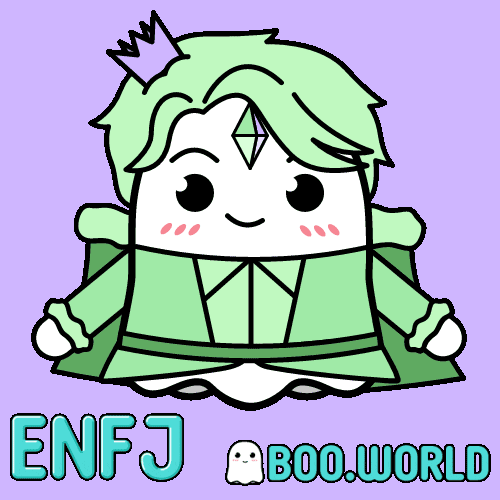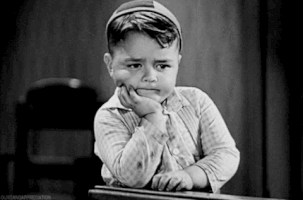We use cookies on our website for a number of purposes, including analytics, performance, and advertising. Learn more.
OK!
Boo
SIGN IN
ENFJ Weaknesses: Needy and Indirect
By Derek Lee
In every hero's journey, trials and tribulations forge the path to transformation. It's in our very nature as ENFJs—Heroes—to dive deep, seeking authenticity and understanding in our relationships. Yet, no hero is without flaws, and it's by acknowledging and wrestling with these imperfections that we truly grow. Here, we invite you on a voyage of self-discovery, exploring the facets of our character that make us uniquely human and authentically ENFJ.
The Echoes of Neediness: When Our Passion Becomes Desperation
For those of us walking the ENFJ path, our hearts are ever expansive, always desiring to form deep and meaningful connections. This trait, while a great strength, can also lead us to become excessively needy in relationships. The crux of this neediness lies in our Extroverted Feeling (Fe), compelling us to seek external validation to gauge our own sense of worth.
Imagine you're on a date—an ideal one, perhaps, where laughter and meaningful conversations fill the air. Suddenly, a pang of insecurity strikes as the conversation lulls. Your heart craves affirmation. This is the moment when your ENFJ weakness manifests as neediness.
It's essential for us as ENFJs, and those in our lives, to recognize this and strive for balance. Regular introspection, mindfulness, and reassurance can help in checking this neediness and fostering healthier interactions.
The Subtle Storm: Navigating the Tides of Passive Aggression
Another challenge we ENFJs often grapple with is our tendency towards passive aggression. Rooted in our conflict-averse nature, we may avoid direct confrontation, causing our feelings to seep out in subtle, unintended ways. This behavior is influenced by our dominant Fe, which drives us to maintain harmony even when our own boundaries are infringed upon.
The scenario might look like this: A friend disagrees with a deeply held belief of yours. Instead of openly discussing it, you withdraw and display your discomfort indirectly. It's a classic example of an ENFJ at their worst—conflict averse to the point of stifling self-expression.
It's crucial to remember that disagreement is not necessarily disharmony. Open communication can lead to richer understanding and deeper connections. Embrace your ENFJ cognitive functions, particularly Introverted Intuition (Ni), to introspect and express your true feelings.
A Delicate Balance: On Being Too Sensitive
"Too sensitive"—a label that can often be pinned on us ENFJs. Our keen sense of empathy, again largely attributed to our Fe, can sometimes tip us into the realm of hypersensitivity. We absorb emotions like a sponge, making us responsive but also leaving us vulnerable to harsh words and criticism.
This ENFJ weakness surfaces in both personal and professional relationships. Imagine being given constructive feedback at work and feeling utterly crushed by it. It's like a splash of cold water, shocking and overwhelming.
However, remember, sensitivity is also a strength—it's what makes us Heroes empathetic and compassionate. To balance this trait, we need to develop resilience, drawing on our Se to stay grounded in reality, accepting criticism as an opportunity for growth rather than a personal attack.
The Rollercoaster Ride: Navigating Fluctuating Self-Esteem
Our self-esteem as ENFJs can often mirror a rollercoaster ride—soaring at times, plummeting at others. This fluctuation stems from our heavy reliance on external validation (a product of our Fe) and our critical introspective tendencies (a result of our Introverted Thinking (Ti)).
Whether it's struggling to make a decision or interpreting a stray comment as a critique, ENFJ struggles with self-esteem are real and pervasive. Recognizing this pattern is the first step towards fostering a more stable sense of self-worth.
Developing a habit of self-validation and leveraging our Ni to focus on our inherent worth and abilities can help create a more consistent self-esteem landscape.
Critiquing the Critics: Managing Criticality of Differing Perspectives
While we ENFJs value harmony and understanding, we may become overly critical when confronted with perspectives that starkly contradict our own. Our strong values, shaped by our Fe and Ni, sometimes blur into rigid assumptions, leading to an ENFJ bad trait—criticality of differing viewpoints.
But remember, Heroes—we are all on a journey of growth and understanding. As we cultivate patience and open-mindedness, we learn to appreciate the diversity of human experiences and perspectives.
The Battle of Decisions: The Struggle to Make Tough Choices
One of our most challenging ENFJ problems is making tough decisions. Our desire for harmony, fueled by our Fe, often leads us to consider everyone's feelings and perspectives, making decision-making an exhausting process.
When faced with a difficult decision, our Ti may cause us to second-guess ourselves, plunging us into a cycle of doubt and indecision. Here's where our Se can come to the rescue, helping us stay present and focused, allowing for more confident decision-making.
Rising Above the Shadows: Embracing Your ENFJ Strengths and Weaknesses
Understanding our ENFJ negative traits isn't about casting a shadow on our hero's journey—it's about illuminating the path to self-growth. As we embrace our weaknesses, we step into our power, becoming more empathetic, resilient, and authentic Heroes.
Let's keep in mind, every hero has their Achilles' heel, their quirks and missteps. It's these very ENFJ character faults that make us human, that make us Heroes. They are our trials by fire, the dragons we must tame on our path to becoming the best versions of ourselves.
MEET NEW PEOPLE
JOIN NOW
20,000,000+ DOWNLOADS
ENFJ People and Characters
Universes
Personalities
Personality Database
Meet New People
20,000,000+ DOWNLOADS
JOIN NOW

























































